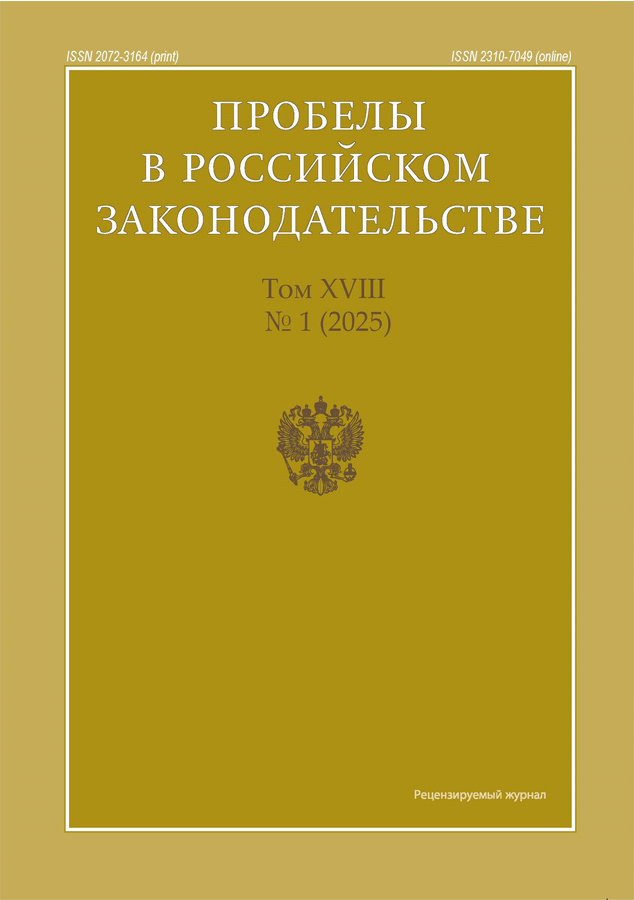Problems of сonfirming the сountry of origin of similar goods in the context of Russian anti-sanctions
- Authors: Khalipov S.V.1
-
Affiliations:
- All-Russian Academy of Foreign Trade of the Ministry of Economic Development of the Russian Federation
- Issue: Vol 18, No 1 (2025)
- Pages: 51-56
- Section: Public Law (State Law) Sciences
- URL: https://journals.eco-vector.com/2072-3164/article/view/677700
- DOI: https://doi.org/10.33693/2072-3164-2025-18-1-51-56
- EDN: https://elibrary.ru/IZCKEM
- ID: 677700
Cite item
Abstract
Objectives of the study. The subject of the article touches upon topical issues of application of Russian foreign trade prohibitions and increased customs duties based on the country of origin of foreign goods. Special economic and retaliatory measures are compared with measures of customs tariff and non-tariff regulation. The duties of confirming the country of origin of imported goods are considered. The legal grounds for the mandatory submission to customs authorities of certificates of origin for goods similar to those prohibited to be imported to the country or those subject to increased rates of customs duties are investigated. Retaliatory measures provided for by the Treaty on the Eurasian Economic Union and retaliatory measures introduced in accordance with the legislation of the Russian Federation on foreign trade activities are analyzed. The problems of information interaction with foreign structures authorized to issue certificates of origin of goods are shown.
Conclusions. Legal assessment of the state enforcement of the requirements of national anti-sanction measures reveals normative shortcomings of the procedure for confirming the country of origin of imported goods. The necessity for participants in foreign trade activities to submit certificates of origin is based not on a notion of a direct obligation, but is presumed by the risk of importing prohibited goods or goods subject to increased rates of customs duties. The formal possibility of non-compliance with special economic and retaliatory measures also remains in cases of importation of goods from countries that are parties to free trade agreements. The impossibility of obtaining the relevant documents from countries unfriendly to Russia encourages the search for a legal alternative to certificates of origin.
Full Text
About the authors
Sergey V. Khalipov
All-Russian Academy of Foreign Trade of the Ministry of Economic Development of the Russian Federation
Author for correspondence.
Email: SHalipov@vavt.ru
SPIN-code: 6247-0387
Cand. Sci. (Law), Assoc. Prof., Head of the Public Law Department
Russian Federation, MoscowReferences
- Butakova Ya. S. Counter-sanctions as an interdisciplinary institute of Russian law. Bulletin of the Voronezh State University. Series: Law. 2023. № 4 (55). Рр. 72–80.
- Vityuk V. V. The definition of the country of origin of goods as the basis of tariff and preferential regulation during the formation of the customs legislation of the Eurasian Economic Union. Novosibirsk. 2018. 256 р.
- Gabov A. V. Anti-sanctions measures in Russian law. Proceedings of the Institute of State and Law of the Russian Academy of Sciences. 2023. Vol. 18. № 3. Рр. 96–141.
- Efimova O. S. Determination of the origin of goods. Мoscow, 2023. 178 р.
- Cenotrusova R. S. The country of origin of goods in the system of state regulation of foreign economic activity: monograph. Мoscow, 2022. 108 р.
- Streltsov R. S., Shcheka A. A. Control of the country of origin of goods: monograph. Vladimir, 2015. 88 р.
- Khalipov S. V. Russia's retaliatory measures in terms of membership in the Eurasian Economic Union. Actual Problems of Russian Law. 2024. Vol. 19. № 8. Рр. 174–185.
- Shakhnazarov B. A. Sanctions law: concept, subject, method, normative composition. Actual Problems of Russian Law. 2022. Vol. 17. № 7. Pp. 143–149.
Supplementary files









